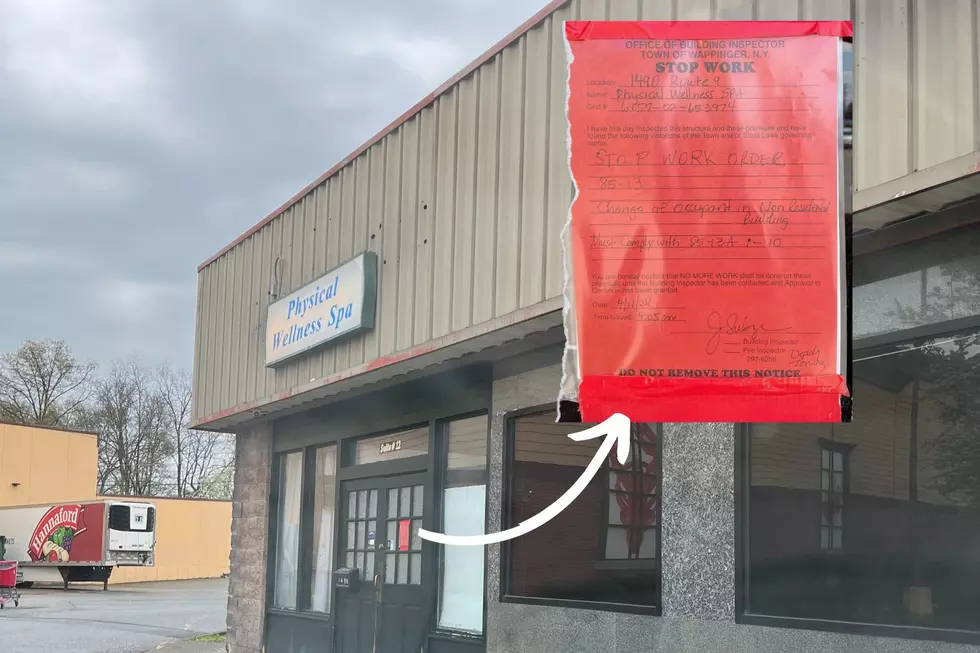
Gov. Cuomo Announces $3 Million to Improve Hudson River
Gov. Andrew Cuomo announced $3 million in grants to help improve the Hudson River and areas near it. The funding will help the Hudson River Estuary Communities improve water quality and increase storm resiliency.
The grants for for new projects will to help communities improve recreation access, protect water quality, conserve open space, and increase storm resiliency in the Hudson River Estuary watershed. A total of $1.76 million in Hudson River Estuary grants were awarded to 36 projects. An additional $1.25 million is now available for organizations and municipalities to apply for through Requests for Applications. The deadline for these RFAs is June 30, 2016.
“The Hudson River plays a key role in New York’s storied history and helped build the state’s economy and its very identity,” Governor Cuomo said in a statement. “This funding will help protect this treasured waterway and its surrounding communities, as well as create more recreational opportunities to be enjoyed by New Yorkers and visitors alike for years to come.”
The awarded Hudson River Estuary grants in the local area are detailed below:
- Resiliency:
Town of Orangetown (Rockland County) – $50,000
Engineering and design plans will be prepared to replace an inadequately sized culvert at 400 NYS Route 303, Orangeburg, which carries the Sparkill Creek and drainage from Route 303 and surrounding areas. The engineering plans will include the removal of an abandoned and deteriorated pump station in the creek which blocks stream flow, in order to mitigate flooding that occurs during heavy rain.
Pace University (Westchester Country) – $48,520
Pace University will develop an adaptive-management plan to prioritize culvert maintenance needs in the Pocantico watershed to improve drainage and decrease flooding during rain storms. A “how-to” guide for culvert assessment and prioritization will also be developed for use by other subwatersheds. This project may also help reconnect the American eel habitat in the Pocantico watershed, as well as provide benefit to trout and amphibian habitat.
Village of Rhinebeck (Dutchess County) – $12,750
A Vulnerability Assessment and Local Adaptation Plan will be developed for Rhinebeck’s water system to identify adaptation actions the village could implement in the future to increase the resiliency of its water-intake system and treatment plant from storm surge and sea-level rise (SLR). The intake system, access road, lift station and plant will be components of the study.
Town of Red Hook (Dutchess County) – $12,750
The town of Red Hook will analyze the Saw Kill watershed culvert data collected by Cornell University, NYS Water Resources Institute and DEC to develop a list of ten priority culverts for replacement that will be included in the town’s capital planning efforts. Conceptual design and cost estimates for upgrading and/or replacing the culverts will also be developed. The plans to improve hydraulics and remove aquatic barriers in the watershed will benefit American Eel and other aquatic organism connectivity, while also reducing local flooding.
- Green Infrastructure:
Vassar College (Dutchess County) – $50,000
Vassar College will develop a shovel-ready pilot project at the Vassar dairy barns to demonstrate green infrastructure practices to the college community and visitors. The plan will focus on the renovated dairy barn of the Environmental Cooperative, the road leading into the site, the parking lot adjacent to the barns and the site of the Poughkeepsie Farm Project.
Riverkeeper, Inc. (Westchester County & New York County) – $50,000
Riverkeeper will map the drainage area of Combined Sewer Overflows along the length of the Harlem River in Manhattan and the Bronx to improve stormwater management and water quality in the Harlem River watershed. Riverkeeper will also identify locations where green infrastructure can be used to capture stormwater.
Village of New Paltz (Ulster County) – $45,000
The village of New Paltz will evaluate the suitability of green infrastructure at public spaces where there are water-related problems and where infrastructure improvements are planned. The project also includes education and outreach to municipal and community stakeholders.
- Watershed:
Riverkeeper (Ulster and Orange Counties) – $50,000
Riverkeeper will coordinate the activities of the Wallkill River Watershed Alliance in Orange and Ulster counties, and will partner with the Alliance to develop protocols and best practices for measurements of fecal indicator bacteria, nutrients and algae in the Hudson River watershed. The project will improve water-quality monitoring and ensure consistency of data.
Bard College (Dutchess County) – $49,950
Bard College will conduct a study to assess the impacts of maintenance and repair, partial removal, or entire removal of the Lower Saw Kill dam. The dam on the Saw Kill Creek is a known barrier to aquatic connectivity for American Eel, a Species of Greatest Conservation Need.
Hudson River Watershed Alliance (Orange County) – $38,952
The Hudson River Watershed Alliance will produce a demonstration water budget and flow-mapping of the Quassaick Creek Watershed that can be replicated by other watershed groups and municipalities throughout the Hudson River Watershed to help manage and protect streams and other water resources, monitor water availability, in-stream flow and water usage in the long term.
Hudson Valley Arts and Science (Westchester County) – $25,752
Hudson Valley Arts and Science will characterize and map the water quality, fish ecology and flow characteristics along the entire length of the Sing Sing Kill, to locate sources of sewage and identify barriers to fish migration. The organization also will install a stream gauge to collect stage and flow data, and will create public signage about its findings.
Pace University (Westchester County) – $10,047
Pace University will work with Teatown Lake Reservation to create a baseline habitat assessment of the Pocantico watershed to inform future management decisions and evaluate project proposals by the Pocantico River Watershed Alliance, Pocantico River Watershed Conservancy, and local municipalities in the watershed.
- Natural Resource Inventories (NRI):
Town of Pound Ridge (Westchester County) – $24,501
The town of Pound Ridge will update its natural resources inventory (NRI) to include an inventory of underground spill sites, a potential source of pollution, and a habitat study of the area of the town within the Hudson River estuary. The project will include training, education and outreach activities.
City of Hudson (Columbia County) – $20,000
The city of Hudson will produce a natural resources inventory and conservation plan (NRI) to guide land-use decisions. The NRI will be used to revise the existing zoning ordinance to help conserve green space, reduce stormwater, promote green (nature-based) infrastructure strategies, protect open space and historic resources, and to develop vacant lots and brownfield areas.
- Scenery:
Town of Hyde Park (Dutchess County) – $17,000
The town of Hyde Park will update its zoning code by refining the areas included within the Scenic and Historic Overlay Districts that were established during a comprehensive planning process conducted in the 1990s. The town will create a precise map of the regulated areas which will clarify the restrictions that apply in important viewsheds.
- River Access:
Hudson Valley Arts and Science (Westchester County) – $100,000
Hudson Valley Arts and Science will complete the design and permitting of an extension to a public pier in Ossining, NY that was modified during the rebuilding of the Metro North ferry terminal. The pier extension will provide adequate draft for visiting historic and tourist ships such as the Hudson River Sloop Clearwater, the Half Moon, the Amistad replica and the old Hudson River Day Line.
Beacon Sloop Club (Ulster and Dutchess Counties) – $100,000
The Beacon Sloop Club will complete the restoration of the ferry sloop Woody Guthrie including planking and fairing of the hull, reinstallation of the cabin and cockpit, caulking, and replacement of decking. The Woody Guthrie provides free educational sails on the Hudson River to the general public, school groups and other local organizations. Beacon Sloop Club programs also include a sail training program with classroom and on-board training, and a winter environmental education program for crews, which are free and open to the public.
Bard College (Dutchess County) – $44,744
Bard College will conduct a feasibility study to develop a sustainable access plan for trail improvements to the Tivoli South Bay shoreline trail that may connect the Tivoli Bay Wildlife Management Area to Bard College trails, creating a direct connection to the south. The study includes assessment of cost and steps to repair canoe and boat docks.
Town of Saugerties (Ulster County) – $42,500
The town of Saugerties will conduct a shoreline improvement study to evaluate specific needs for creating safe and climate-resilient access to the Hudson River shoreline at Bristol Beach State Park. The study will also identify educational opportunities and establish a plan for linking trails.
Town of Marlborough (Ulster County) – $40,000
The town of Marlborough will complete an engineering study and plan to restore the southern pier at Milton Landing to operational use. A restored pier will provide deep-water mooring capabilities for larger craft, and enhance opportunities for recreation, tourism and education.
Yonkers Paddling & Rowing Club – (Westchester County) – $25,078
The Yonkers Paddling & Rowing Club will upgrade outdated equipment and purchase additional kayaks and paddles to increase the capacity of its free public kayaking and environmental awareness program located at the JFK Marina and Park in northern Yonkers. The rowing and paddling club will also enhance its environmental education curriculum. The volunteer-run membership program serves youth and adults from the surrounding Environmental Justice areas.
- River Education:
City of Hudson (Columbia Country) – $91,780
The city of Hudson will build and equip a riverfront information center, the Everett Nack Estuary Education Center on the city’s waterfront. The Center will be constructed from a recycled shipping container and will be developed and operated by The Hudson Sloop Club. Designed to be accessible to people of all abilities, the education center will offer hands-on and experiential displays and activities, and will host visiting environmental educators, scientists, community members and visitors to the city of Hudson.
Sarah Lawrence College (Westchester County) – $64,990
The Center for the Urban River at Beczak (CURB) will plan and design nature-based, green infrastructure demonstration projects to improve stormwater management on its two-acre outdoor site. CURB will also create signage, fact sheets, and web content to inform the public about stormwater, urban runoff, and combined sewer overflow (CSO) issues and will design a monitoring plan to provide opportunities for youth engagement and citizen science.
Orange County Water Authority (Orange County) – $47,486
The Orange County Water Authority will lead the development of the Estuary Stewardship through Education project to educate residents of various ages about the estuary and its natural resources. The County will design and install informational kiosks, develop a website and social media applications, and offer kayak tours. The project is a collaboration with Orange County Parks, the City of Newburgh, Village of Cornwall, Orange County Community College, Clearwater, Black Rock Forest Consortium and Storm King Adventure Tours.
Hudson River Sloop Clearwater, Inc. (Dutchess County) – $32,557
Clearwater will create an interactive, website for its Key to Common Hudson River Fishes program that will augment the Key’s content on the history, ecology and management of Hudson River fish. The website will include videos, maps, current research, natural history, status of fish species and health advisories.


